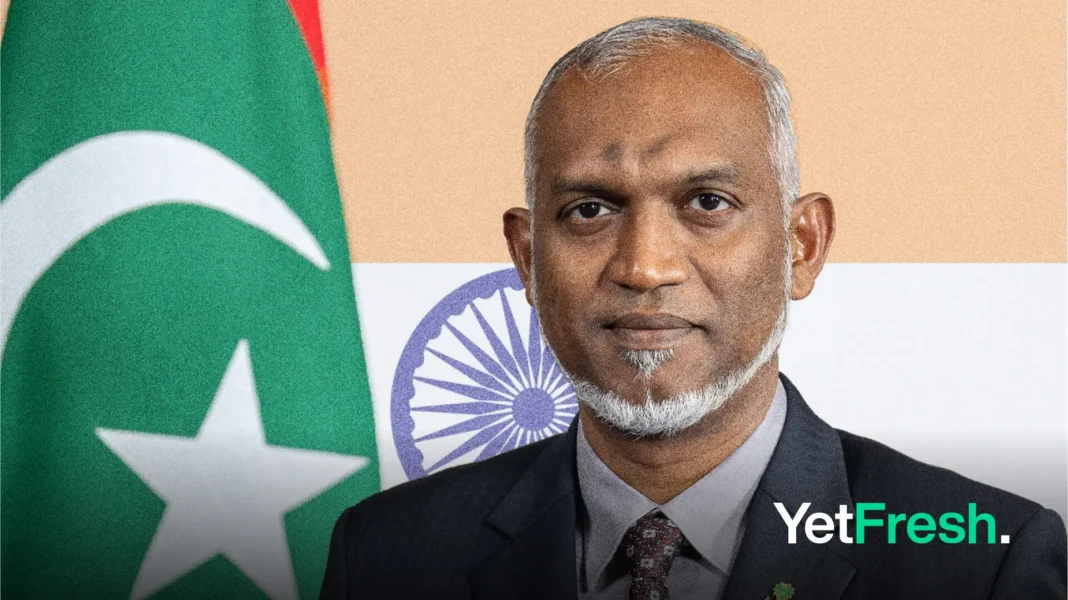Summary:
- President Muizzu orders withdrawal of 89 Indian military personnel from Maldives by May 10, signaling a significant shift in regional security dynamics and bilateral relations.
- Maldives signs defense cooperation agreement with China in March 2024, securing free military assistance while deepening strategic partnership with Beijing.
- Economic challenges force diplomatic reset as Maldives faces $1.37 billion Chinese debt and low foreign reserves, leading to renewed engagement with India.
- India provides substantial economic support including $400 million currency swap and development projects, demonstrating Maldives’ pragmatic approach to balancing relations.
The Maldives has emerged as a key battleground in the Indo-Pacific power dynamics, with President Mohamed Muizzu carefully navigating relationships between regional giants India and China.
The strategic shift began when President Muizzu ordered the withdrawal of 89 Indian military personnel from the Maldives by May 10, marking a significant change in the archipelago’s traditional security arrangements. In March, 25 Indian soldiers stationed in the southernmost atoll of Addu departed as part of this withdrawal agreement.
Strengthening ties with Beijing, the Maldives signed a defense cooperation agreement with China in March 2024, securing free military assistance. Chinese Foreign Ministry spokesman Wang Wenbin expressed China’s commitment to deepening the “comprehensive strategic cooperative partnership” between the two nations.
However, economic realities have prompted a more balanced approach. The Maldives faces significant fiscal challenges, including dwindling foreign reserves of $440 million and substantial debt to China, approximately $1.37 billion. This economic pressure has led to a diplomatic reset with India.
In a notable shift, Muizzu visited New Delhi, where he designated India as a “valued partner” and engaged in productive discussions with Prime Minister Narendra Modi. The visit yielded substantial economic support, including:
- A $400 million currency swap agreement
- Rollover of $100 million in treasury bills
- Development of a commercial port on Thilafushi Island
- Launch of Indian financial services company RuPay in the Maldives
Modi emphasized the “centuries-old relationship” between the two nations, while committing to assist the Maldives with infrastructure development projects. The diplomatic engagement demonstrates the Maldives’ pragmatic approach to maintaining relationships with both Asian powers.
The archipelago’s strategic location along one of the world’s busiest maritime routes makes it crucial for both India and China’s regional interests. While China continues its infrastructure investments through the Belt and Road Initiative, India maintains its position as a vital economic partner for the Maldives during challenging economic times.
This diplomatic balancing act reflects the complex geopolitical landscape in the Indian Ocean region, where smaller nations must carefully manage relationships with competing regional powers while pursuing their national interests.
Source: Washington Post




